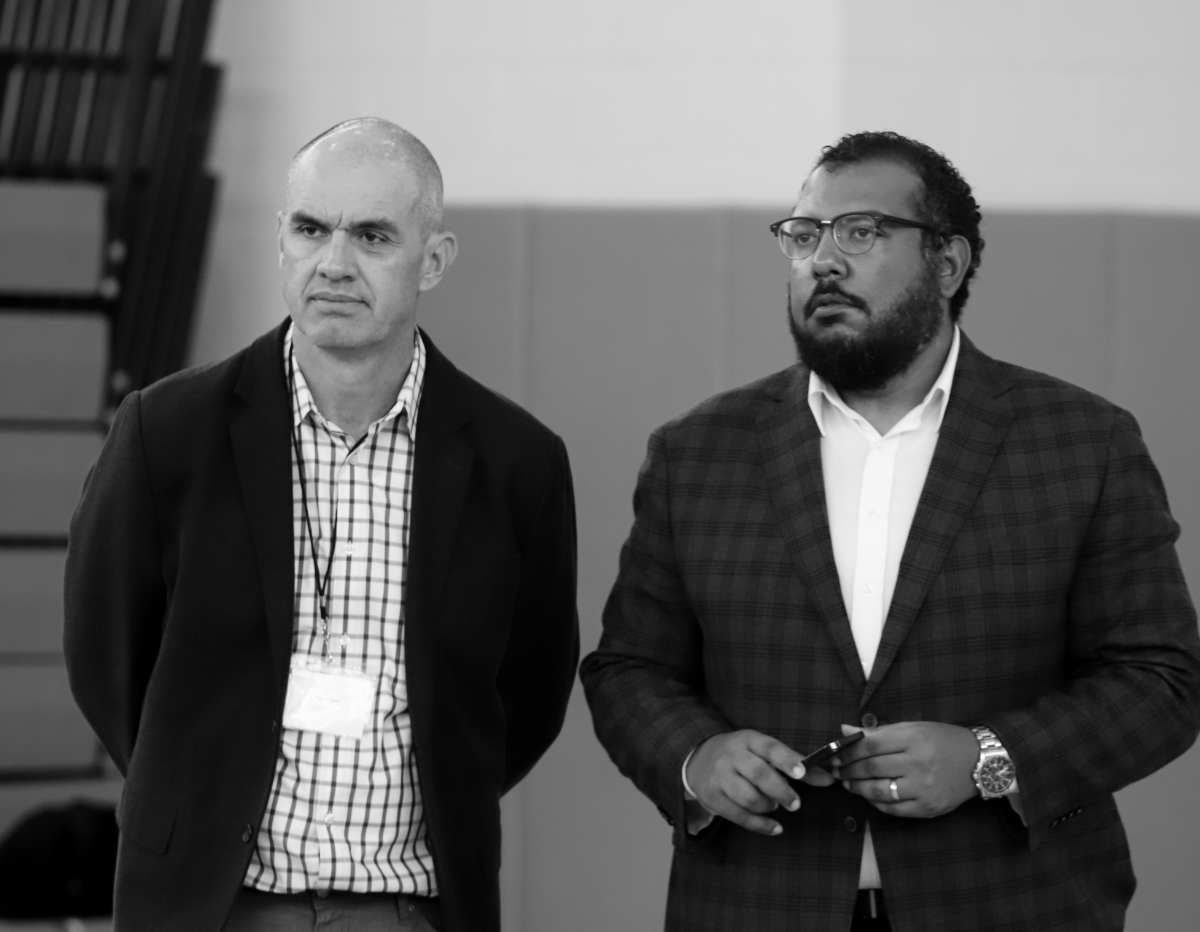
I recently attended the 20th anniversary celebration of Mothers in Charge, the essential organization that Dr. Dorothy Johnson-Speight founded after her son’s senseless murder. She supports and heals mothers and family members who have lost loved ones to violence and incarceration.
MIC and Dr. Dorothy have been incredible partners with EJUSA over the years while also expanding their services in multiple ways to heal and strengthen young people who live close to violence.
Dr. Dorothy and her amazing team did the festivities right. Hundreds of people showed up to a suite at Lincoln Financial Field, home of the Philadelphia Eagles. Some of the first mothers to find MIC two decades ago were there. The women who started MIC chapters in California, New York, and Missouri traveled for the occasion. There were city council members, a state senator. Pennsylvania Governor Josh Shapiro came to honor Dr. Dorothy, proof of how important this work is for families.
Dr. Dorothy formed MIC because she couldn’t find another group for grieving Black mothers in need of healing. Her work has always served Black communities, and that’s not a coincidence. Some parts of Black communities bear the brunt of gun violence because they are under-resourced, impoverished, and struggling under the weight of historical trauma and generational racism and oppression. These are some of the many root causes of violence.
So I fully expected to be in the minority at the gala, and was. Maybe 10% of the audience was white.
Early in the evening, I was sitting at a table with my friend, enjoying a beverage. A police officer approached. He asked me, “Do you drive a BMW?” I do not.
He said, “A guy who looked just like you got out of a BMW. He parked the police commissioner in, and she has to leave.” Philly’s police commissioner had just spoken to the audience.
I made a dumb joke about how easy it would be to find someone so good looking. He laughed, probably politely, and continued his search.
But it took me a couple minutes after my encounter, with the help of my friend, to realize that, technically, I had been racially profiled.
Technically is important. I clearly benefited from his assumption. In all likelihood, the cop was looking for a white guy wearing a suit and tie, with short hair (okay, balding).
But there is an ominous, implicit meaning in the true definition of racial profiling. Our policing system makes assumptions about Black and Brown people — that they are dangerous or violent, that they have committed some kind of criminalized behavior, that they don’t have the right legal documents — and targets them. They don’t even necessarily do anything wrong, police simply initiate an interaction.
The outcomes of those interactions can span a wide range of harm, from getting some kind of citation to dying from police violence.
But there is also the trauma of the interaction. I will make an assumption which I don’t think is groundless: if you’re Black and an officer approaches you, regardless of the circumstances, at a minimum you’re going to put your guard up. You’re going to expect suspicion. If you’re young and male, you might expect to be frisked. Questioned. Or worse. You could be scared. Angry. Or both. And you might believe that acting on either of those emotions is dangerous, a risk to your life or your freedom.
All of those possibilities leave trauma behind, scar tissue that might not heal.
None of that came up for me as I spoke with the officer. I’ve had few interactions with the police and, as a white male, I don’t anticipate hostility or mistrust. I know that the police will assume the best. They extend endless courtesies and accommodations to people who look like me. We’ve seen this in countless videos of police officers interacting with white people. We get to go home. But for Black and Brown people, the interaction could end very differently.
I wrote this to shine a light on just one facet of safety—that an encounter with the police shouldn’t include a high likelihood of trauma. Being safe around police and walking away from the experience shouldn’t be a privilege reserved for white people. Feeling safe—in your car, on a street or at a park, in your home, and, yes, in the presence of cops—is a right. But we have a system that was built to deny that right to Black people. The DNA of that system still exists in our criminal legal system. That’s why we’re building community safety in a completely different way.



